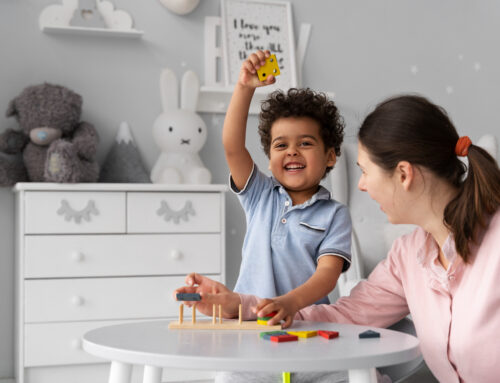
- As much as we would all like to throw caution to the wind and do whatever we like all day, life can only continue on a functional level when we cover the essentials. This includes eating, dressing, bathing, working, buying groceries, and the daily chores that keep our homes and our lives fully operational. As far as chores are concerned, this includes any of the following familiar tasks:
- Sweeping and mopping the floors
- Vacuuming the carpets
- Dusting the furniture
- Cleaning and loading dishes
- Loading, folding, and stashing laundry
- Wiping off the counters
- Taking care of yardwork (mowing, weeding, watering)
- Cooking and preparing meals
- Cleaning out bedrooms
- Scrubbing down the bathroom
- Picking up scattered clothes and toys
- Fixing broken appliances
- Wiping down windows
- Making beds
Not very many adults think these tasks are fun, but we all know that they MUST get done eventually before our homes become a cesspool for germs, unfriendly smells, and overwhelming clutter. Therefore, assigning chores to young children can prove to be very beneficial, both for guardians/parents and for the kids themselves.
For some of us, it is difficult to hand over our to-do list to a child. Let’s be honest, unless the child is uniquely gifted in this area, adults get the chores done faster and more efficiently because we’ve had years of practice. Giving chores to our child means that we have to be content with chores being completed (or partially completed) in ways that we may not find satisfying. This includes laundry being rolled up instead of folded, wipe marks on the mirrors and windows, spilled soaps, over-watered plants, uneven sheeting on the beds, and the occasional missed toys on the floor.
Once we get past our own hesitations, we can see why starting children young on a chore schedule becomes a fantastic option. Of course, not all children are the same and some will struggle more with chore completion than others. Start slow, giving them small chores that you know they can handle but at the same time challenge them in a healthy manner. Children who participate in their chores can improve in the following areas:
- Time management: Kids participating in a structured chore schedule have to learn how to organize and prioritize tasks. In the back of every child’s mind is the motivation to complete chores early in order to go play. Having an end goal in mind teaches them how to effectively finish chores before participating in extracurricular tasks of their choosing.
- Attention span: Completing a chore takes dedicated attention for a specific amount of time. For some children, parents will have monitor the child’s participation and possibly cue them back to the chore until it’s completed. In the long run, it teaches the child how to stick with a task until the end.
- Safety awareness: As children get older, they may get asked to complete tasks that require climbing on ladders, handling dangerous cleaning chemicals, or using sharp tools. With proper guidance, children can learn to complete such chores without getting hurt and thus being more aware of potential dangers in the future.
- Social participation: Select chores in which your child has to work together with siblings or other family members. All participants would have to delegate responsibilities and problem-solve ways to complete the chores.
- Fine and gross motor coordination: Squeezing sponges, pushing mops and vacuums, reaching overhead to dust the fans, rubbing grime off of the dishes…these all require an intense amount of gross/fine motor coordination and movement. Children who struggle with typical movement greatly benefit from participation in daily chores because the requirements are novel and non-repetitive.
- Muscle strengthening and postural improvement: Similarly to gross and fine motor movement, muscle strength and typical postural alignment can be attained with the use of chores. Such tasks like lifting a full laundry basket, pushing a mop against the floor, bending up and down for dishes in the dishwasher, mowing the lawn, and wiping higher windows and mirrors are all excellent tasks for this purpose.
- Transitioning from one task to another: As a parent, you may choose to give your child a predictable, rote chore schedule or you may choose to switch it up on occasion depending on how your child will react. For children who need to work on transitioning from one task to another, changing up the chore schedule every once in a while will reduce the predictability and give the child a slight challenge to adjust to the change.
- Self-discipline: This should go without saying, but some of us adults need to remind ourselves that giving our child chores will help them succeed as adults in the long-run. Starting our children on chores early gets them used to daily living requirements so that they don’t have to depend on others to tell them when or how to complete household chores.





